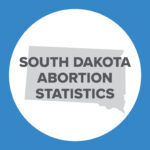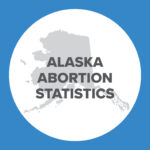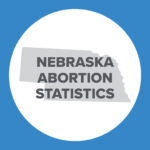Supreme Court Denies Planned Parenthood Request for Review
On May 29, 2018 the U.S. Supreme Court denied a petition for a writ of certiorari filed earlier this year by Planned Parenthood of Arkansas & Eastern Oklahoma.
Planned Parenthood had asked the Supreme Court to review the opinion of the U.S. Court of Appeals for the Eighth Circuit in a case involving the Arkansas Abortion-Inducing Drugs Safety Act. The law requires physicians who provide or prescribe the abortion pill regimen to have a signed contract with a physician who agrees to handle complications and has active admitting privileges and gynecological/surgical privileges at a hospital.
A trial court granted Planned Parenthood’s request for a preliminary injunction. But the Eighth Circuit sent the case back to the trial court for additional factfinding.
The denial of certiorari by the Supreme Court means that case will go back to the trial court for additional factfinding, as the Eighth Court ordered.
Following additional factfinding and a reconsidered judgment in the trial court, the Eighth Circuit and, eventually, the Supreme Court likely will be asked to review the case once again.
The Arkansas Abortion-Inducing Drugs Safety Act
The Eighth Circuit opinion provides helpful background on the Arkansas Abortion-Inducing Drugs Safety Act. The following quotes come from pages 2-3 of the slip opinion (internal citations removed).
In 2015, Arkansas enacted the Abortion-Inducing Drugs Safety Act (“the Act”). The Arkansas Legislature made findings that abortion-inducing drugs present significant medical risks, including “abdominal pain, cramping, vomiting, headache, fatigue, uterine hemorrhage, viral infections, and pelvic inflammatory disease.” It further determined that medication abortions are “associated with an increased risk of complications relative to surgical abortion[s]” and found that, based on a 2011 United States Food and Drug Administration report, complications included eight deaths attributed to severe bacterial infection, 612 hospitalizations, 339 blood transfusions, and 256 infections.
To address these health concerns, the Act created new requirements for physicians providing medication abortions. Section 1504(d) sets forth the “contract-physician requirement,” which is the subject of the current appeal. The provision requires that:
(1) The physician who gives, sells, dispenses, administers, or otherwise provides or prescribes the abortion-inducing drug shall have a signed contract with a physician who agrees to handle complications and be able to produce that signed contract on demand by the patient or by the Department of Health.
(2) The physician who contracts to handle emergencies shall have active admitting privileges and gynecological/surgical privileges at a hospital designated to handle any emergencies associated with the use or ingestion of the abortion-inducing drug.
(3) Every pregnant woman to whom a physician gives, sells, dispenses, administers, or otherwise provides or prescribes any abortion-inducing drug shall receive the name and phone number of the contracted physician and the hospital at which that physician maintains admitting privileges and which can handle any emergencies.
Abortion Access in Arkansas
The Eighth Circuit explained that “Planned Parenthood of Arkansas & Eastern Oklahoma (‘PPAEO’) provides medication abortions in Arkansas at its two facilities, one in Fayetteville and the other in Little Rock. The only other Arkansas abortion provider, Little Rock Family Planning Services (‘LRFP’), administers both medication and surgical abortions at its Little Rock facility.”
District Court Rules Against the Act
The district court found, as described in the Eighth Circuit opinion, “that Planned Parenthood could not find a physician to contract with and that, as a result, the Planned Parenthood facilities in Little Rock and Fayetteville would stop offering abortion services.”
The district court also found, as described in the Eighth Circuit opinion, “that medication abortion would no longer exist in Arkansas and that LRFP would be the sole abortion provider in Arkansas and would only administer surgical abortions.”
As described in the Eighth Circuit opinion, the district court found “that the closure of PPAEO’s Fayetteville facility would force ‘women in the Fayetteville area’ to make two, 380-mile round trips to obtain an abortion at LRFP. As a result of the increased travel distances,” the Eighth Circuit continues, “the district court determined that ‘some women’ in the Fayetteville area would postpone the procedures, leading to an increased risk of complications, while others would forgo abortions entirely. The [district] court further noted,” the Eighth Circuit explains, “that the record did not allow a finding as to whether LRFP would be able to ‘absorb such an increase in the number of procedures or whether [LRFP] will be able to cover fully the needs of women who might have sought care at [Planned Parenthood].’” (I omitted internal citations in this paragraph.)
The district court granted Planned Parenthood’s request for preliminary injunction thus, in the words of the Eighth Circuit, “preventing the enforcement” of the provision of the Arkansas Abortion-Inducing Drugs Safety Act “requiring medication-abortion providers to contract with a physician who has hospital admitting privileges.”
Eight Circuit Rules that the District Court “Abused its Discretion”
The Eighth Circuit faulted the judgment of the district court. The Eighth Circuit reviewed the order of the trial court using the “abuse of discretion” standard of review. Even under that highly deferential standard, however, the Eighth Circuit concluded that the district court had failed.
The Eighth Circuit set out several points.
- To win a motion for preliminary judgment, Planned Parenthood needed to show that it was “likely to prevail on the merits.”
- This case involves a broader “facial” challenge rather than a narrower “as applied” challenge (second quote marks are mine). Accordingly, to prevail on the merits in this case, Planned Parenthood needed to demonstrate “that ‘in a large fraction of the cases in which [the law] is relevant, it will operate as a substantial obstacle to a woman’s choice to undergo an abortion’” (quoting 1992 Supreme Court opinion in Planned Parenthood v. Casey).
- “The Supreme Court has clarified,” explains the Eighth Circuit, “that ‘cases in which the provision at issue is relevant’ is a narrower category than ‘all women,’ ‘pregnant women,’ or even ‘women seeking abortions identified by the State’” (quoting 2016 Supreme Court opinion in Whole Woman’s Health v. Hellerstedt quoting Casey).
- “Thus,” the Eighth Circuit continues, “because the contract-physician requirement [of the Arkansas Abortion-Inducing Drugs Safety Act] only applies to medication-abortion providers, the ‘relevant denominator’ here is women seeking medication abortions in Arkansas.”
- “Accordingly,” the Eighth Circuit explains, “in order to sustain a facial challenge and grant a preliminary injunction, the district court was required to make a finding that the Act’s contract-physician requirement is an undue burden for a large fraction of women seeking medication abortions in Arkansas.”
In the judgment of the Eighth Circuit, “The district court did not make this finding.” The district court “did not define or estimate the number of women who would be unduly burdened by the contract-physician requirement. Instead,” the Eighth Circuit explains, “it focused on amorphous groups of women to reach its conclusion that the Act was facially unconstitutional.” In particular,
- “the district court did not determine how many women would face increased travel distances,”
- “the district court failed to estimate the number of women who would forgo abortions,” and
- “the [district] court did not estimate the number of women who would postpone their abortions.”
“As a result,” the Eighth Circuit explains, “we are left with no concrete district court findings estimating”
- “the number of women who would be unduly burdened by the contract-physician requirement—either because they would forgo the procedure or postpone it,”
- “and whether . . . [that number] constitute[s] a ‘large fraction’ of women seeking medication abortions in Arkansas,”
“such that Planned Parenthood could prevail in its facial challenge to the contract-physician requirement.”
“[O]n remand,” the Eighth Circuit instructed, “the district court should conduct fact finding concerning the number of women unduly burdened by the contract-physician requirement and determine whether that number constitutes a ‘large fraction.’”
Supreme Court Denies Review
On December 21, 2017 Planned Parenthood filed a petition for a writ of certiorari asking the U.S. Supreme Court to review the case and reverse the ruling of the Eighth Circuit. On May 29, 2018 the Court denied that petition.
The case will now go back to the trial court for additional factfinding, as ordered by the Eighth Circuit.
Following additional factfinding and a reconsidered judgment in the trial court, the Eighth Circuit and, eventually, the Supreme Court likely will be asked to review the case once again.
Thomas M. Messner, J.D. is a Senior Fellow in Legal Policy at the Charlotte Lozier Institute.
























